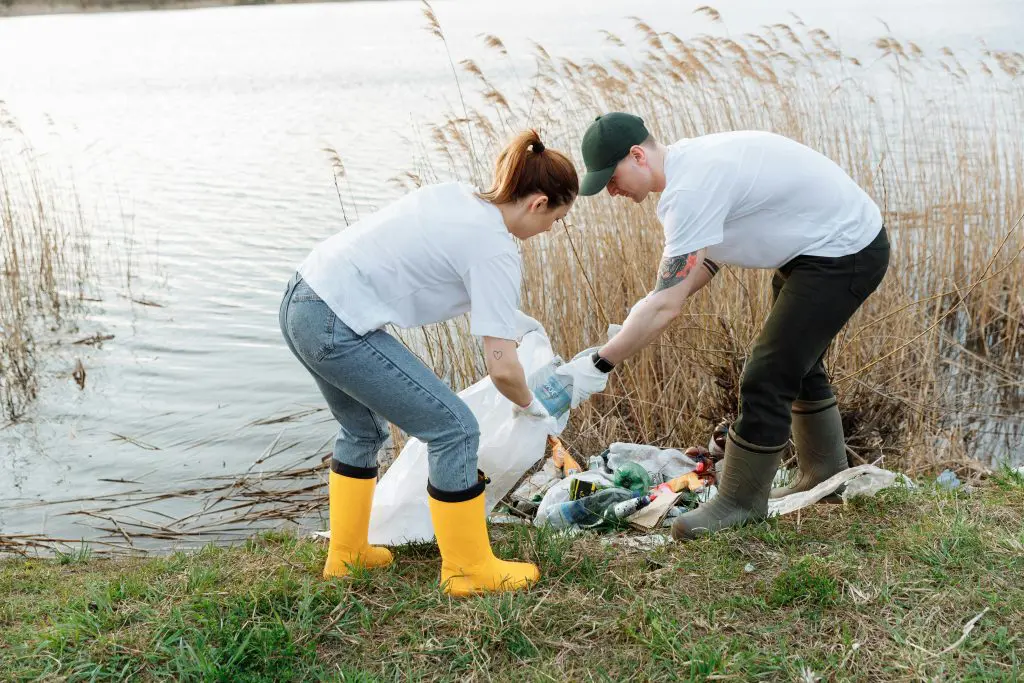
The River Boyne, one of Ireland’s most iconic and culturally significant rivers, is facing an escalating pollution problem. In recent months, residents, anglers, and walkers have reported increasing amounts of rubbish washing up along its banks, including plastic bottles, food wrappers, cans, and even household waste. “It’s heartbreaking to see,” said one regular walker near […]
The River Boyne, one of Ireland’s most iconic and culturally significant rivers, is facing an escalating pollution problem. In recent months, residents, anglers, and walkers have reported increasing amounts of rubbish washing up along its banks, including plastic bottles, food wrappers, cans, and even household waste.
“It’s heartbreaking to see,” said one regular walker near Oldbridge. “The Boyne is such an important part of our heritage, and to watch it being choked with rubbish is very upsetting.”
Environmental groups believe the growing litter problem is the result of multiple factors:
Illegal dumping
Litter carried downstream
Waste flushed in during periods of heavy rain and flooding
These conditions have led to increased pollution along the riverbanks and pose serious threats to local wildlife, including fish, birds, and small mammals. Animals are at risk of ingesting harmful plastics or becoming entangled in debris.
Volunteers have organised clean-ups in areas such as Drogheda and Navan, collecting bags of waste from the Boyne’s edges. Despite these efforts, many locals say that more coordinated, long-term action is urgently needed.
Mayor of Drogheda, Michelle Hall, who has participated in annual clean-up efforts along the Boyne, particularly at Beaulieu, expressed concern about the type and volume of waste being found.
“The River Boyne is one of Ireland’s most important natural assets and it always pains me to see waste along the banks. I’ve participated in the annual clean up along the river especially at Beaulieu and what I’ve noticed is a lot of it is fast food packaging and plastic bottles,” she said. “With the successful Deposit Return Scheme for plastic bottles, there has been a marked reduction in this form of waste but it’s not enough.”
She also warned of more insidious threats.
“Microplastics in our waters are found to negatively affect health, and even smaller nano-plastics can get into our cells, according to medical studies.”
Community clean-ups are vital in tackling immediate pollution, raising awareness, and fostering civic pride. However, environmental groups caution that these efforts are not a permanent fix. Without upstream interventions, such as better enforcement against dumping, stronger producer responsibility policies, and improved public infrastructure, the waste will keep returning. Clean-ups must be part of a broader, systemic strategy rather than a stand-alone solution.
Mayor Hall stressed the need for nationwide shifts in how we package and dispose of waste, saying we must look to more sustainable alternatives like paper and glass. She urged individuals to take personal responsibility.
“Everyone has a responsibility to dispose of their waste in their homes or in the many bins around the town. There’s no excuse for dumping as it affects everyone when this happens, from being unsightly to look at and adverse health issues.”
Campaigners and locals alike are warning that unless stronger actions are taken, the Boyne’s ecosystem could suffer lasting damage. One volunteer put it plainly:
“The Boyne belongs to all of us. If we want future generations to enjoy it, we need to take responsibility now.”
Beyond environmental concerns, pollution in the Boyne can have economic repercussions. The river supports local tourism, fishing, and leisure activities. Persistent pollution threatens the visual appeal of the riverbanks, deters visitors, and damages the natural heritage linked to the river’s historic sites. Left unchecked, it could lead to increased clean-up costs, loss of biodiversity, and diminished cultural value, a steep price for failing to protect one of Ireland’s most celebrated waterways.
Pollution along the River Boyne is a visible and growing issue tied to dumping, heavy rainfall, and inadequate waste management. Community volunteers and local leaders like Mayor Michelle Hall are calling for systemic solutions, responsible behaviour, and a return to sustainable practices to protect one of Ireland’s most treasured natural and historical landmarks.
Ireland is not alone in facing river pollution challenges. Countries like the Netherlands and Germany have implemented river-wide monitoring systems, upstream waste interception technologies, and public education programs tied to school curricula. These models show that combining technology, policy, and community engagement leads to longer-lasting results. Similar approaches could be adapted for the Boyne, especially in areas most affected by litter and run-off.
At All-Ireland Sustainability, we’re committed to building a greener, fairer island, together. Stay informed on the latest environmental initiatives, community action, and policy developments shaping sustainability across Ireland, North and South.
👉 Sign up for our newsletter today and be the first to hear about upcoming events, expert insights, and ways to get involved.
Whether you’re a seasoned advocate or just starting your journey, new members are always welcome.
Subscribe now and be part of the All-Ireland Sustainability Membership.